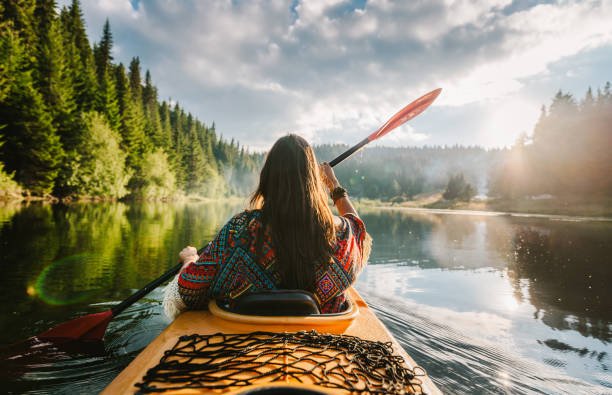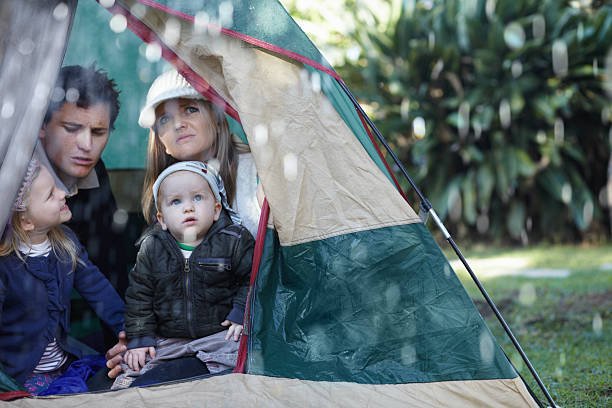Contents
- 1 Introduction to riverside camping tips
- 2 Choosing the Perfect Riverside Camping Spot
- 3 Essential Gear for Riverside Camping
- 4 Packing Smart: What to Bring and What to Leave Behind
- 5 Setting Up Camp by the River
- 6 Safety Tips for Riverside Camping
- 7 Cooking by the Riverside
- 8 Fun Activities to Enjoy During Riverside Camping
- 9 Keeping the Environment Pristine
- 10 Engaging Kids in Riverside Camping
- 11 Common Riverside Camping tips to dealing with Challenges
- 12 Best Times for Riverside Camping
- 13 Solo Riverside Camping Tips for Adventurers
- 14 Couples Riverside Camping tips
- 15 Conclusion
Introduction to riverside camping tips
Riverside camping offers a unique appeal. The soothing sounds of flowing water, the serene environment, and the stunning natural beauty make it a preferred choice for many outdoor enthusiasts. Whether you are an experienced camper or new to the adventure, camping by a river provides a peaceful escape and an opportunity to connect with nature. The purpose of this guide is to equip you with all the essential tips and knowledge needed for a successful and enjoyable riverside camping experience. From choosing the perfect spot to ensuring safety and comfort, this comprehensive guide covers everything you need to know.
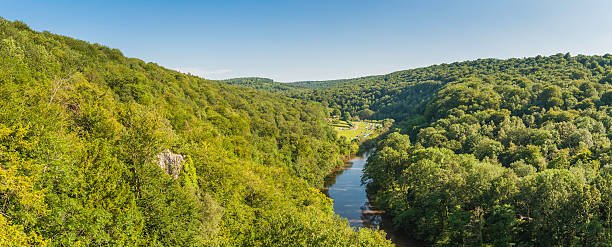
Choosing the Perfect Riverside Camping Spot
i. Research and Recommendations: Choosing the right campsite is crucial for a successful trip. Start by researching potential locations through websites, camping apps, and recommendations from experienced campers. Look for spots that offer the amenities you need and are known for their beauty and safety.
ii. Safety Considerations: Safety should be your top priority. Avoid camping in areas prone to flooding and ensure your campsite is far from any potential hazards. Check for any wildlife warnings and weather advisories before setting up camp.
iii. Accessibility and Amenities: Consider the accessibility of your chosen campsite. Make sure it is reachable by your vehicle or through a manageable hike. Check for nearby amenities such as restrooms, potable water sources, and emergency services to ensure a comfortable and safe stay.
Essential Gear for Riverside Camping
i. Tent and Shelter Options: Choosing the right tent is vital. Look for a sturdy, waterproof tent that can withstand the elements. Consider the size and ventilation features to ensure comfort. Bringing a tarp for extra protection is also a good idea.
ii. Sleeping Bags and Pads: A good night’s sleep is essential. Choose sleeping bags that are appropriate for the season and provide adequate warmth. Pair them with comfortable sleeping pads to ensure you rest well after a day of activities.
iii. Cooking Equipment: Cooking by the riverside can be a delightful experience. Pack a portable stove, cookware, and utensils. Consider bringing a cooler for perishables and plan your meals in advance to make cooking easier and more enjoyable.
iv. Clothing and Footwear: Pack clothing suitable for varying weather conditions. Layered clothing is ideal as it allows you to adjust to temperature changes. Waterproof footwear is essential to keep your feet dry and comfortable during hikes or water activities.
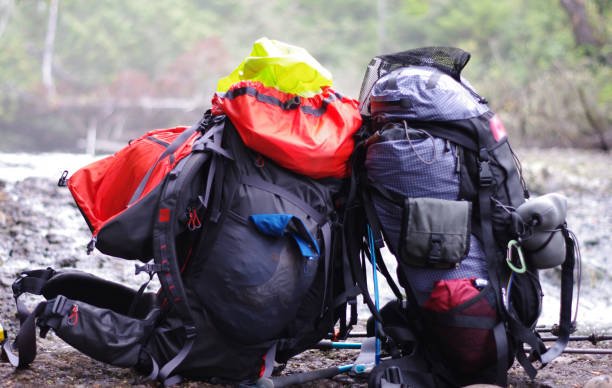
Packing Smart: What to Bring and What to Leave Behind
i. Must-Have Items: Some items are indispensable for any camping trip. These include a first-aid kit, flashlight, multi-tool, biodegradable soap, and a reliable map of the area. These essentials ensure your safety and convenience throughout your trip.
ii. Space-Saving Tips: Packing smartly can make your trip more comfortable. Use packing cubes and collapsible containers to save space. Roll your clothes instead of folding them to maximize space in your backpack or car.
iii. Non-Essentials to Skip: Avoid overpacking by leaving non-essential items at home. Heavy gadgets, excessive clothing, and unnecessary luxuries can weigh you down and clutter your campsite. Focus on bringing only what you truly need.
Setting Up Camp by the River
i. Ideal Tent Placement: Choosing the right spot for your tent is crucial. Look for a flat, elevated area to prevent water from seeping in. Natural shade from trees can provide shelter from the sun and wind, enhancing your comfort.
ii. Importance of Ground Tarps: Ground tarps are essential for keeping moisture out of your tent. They provide an extra layer of protection against damp ground and can help extend the lifespan of your tent.
iii. Creating a Comfortable Campsite: Organize your campsite to maximize comfort. Set up a designated cooking area away from your tent to avoid attracting wildlife. Arrange your gear neatly and create a cozy seating area to relax and enjoy the surroundings.
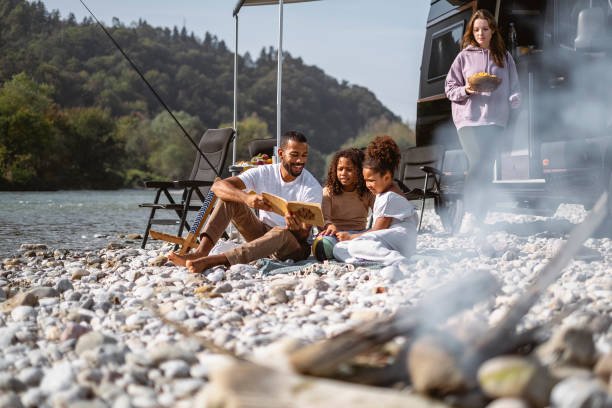
Safety Tips for Riverside Camping
i. Water Safety: Water activities can be fun but also dangerous. Always wear a life jacket when swimming or boating. Be aware of currents and avoid swimming alone. Keep a close eye on children and ensure they understand water safety rules.
ii. Wildlife Awareness: Camping in nature means sharing space with wildlife. Store food securely in bear-proof containers or hang it from a tree. Keep a safe distance from animals and avoid feeding them to prevent unwanted encounters.
iii. Weather Preparedness: Weather conditions can change rapidly. Always check the weather forecast before your trip and pack accordingly. Bring waterproof gear, extra clothing, and a weather radio to stay informed about any sudden changes.
Cooking by the Riverside
i. Easy and Delicious Meal Ideas
Cooking can be a highlight of your camping experience. Plan simple and tasty meals that require minimal preparation and try campfire cuisine recipies. Consider dishes like grilled fish, vegetable skewers, and one-pot pasta. Pre-prep ingredients at home to save time.
ii. Campfire Safety: Campfire safety is paramount. Keep fires small and manageable, and always have a way to extinguish them quickly, such as a bucket of water or a fire extinguisher. Never leave a fire unattended and ensure it is completely out before leaving the site.
iii. Waste Management: Proper waste disposal is essential to protect the environment. Pack out all trash, including food scraps and biodegradable items. Use designated disposal areas if available and follow the Leave No Trace principles.
Fun Activities to Enjoy During Riverside Camping
i. Fishing Tips and Tricks: Fishing is a popular riverside activity. Bring the right gear and research local fishing regulations. Early mornings and late evenings are often the best times to fish. Use natural bait and be patient for the best results.
ii. Swimming Safely: Swimming in a river can be refreshing but requires caution. Always check for safe swimming areas and be mindful of currents. Never swim alone and avoid diving into unknown waters to prevent injuries.
iii. Hiking Trails and Exploration: Exploring the area around your campsite can be a rewarding experience. Look for nearby hiking trails and take the opportunity to discover scenic viewpoints and local flora and fauna. Bring a map and plenty of water for longer hikes.
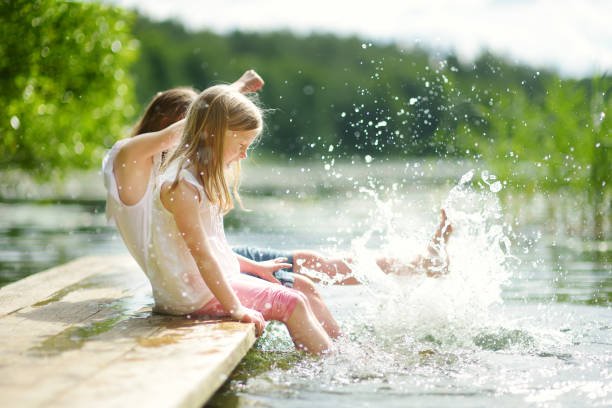
Keeping the Environment Pristine
i. Leave No Trace Principles: Following Leave No Trace principles ensures that the natural beauty of the campsite is preserved for future campers. Stay on designated trails, minimize campfire impact, and respect wildlife and other visitors.
ii. Eco-Friendly Camping Practices: Adopt eco-friendly practices to reduce your environmental footprint. Use biodegradable soap, reusable containers, and solar-powered lights. Avoid single-use plastics and bring a reusable water bottle.
iii. Responsible Waste Disposal: Proper waste management is crucial. Pack out all trash and dispose of waste responsibly. If there are no facilities, take your waste with you and dispose of it at home. Avoid leaving any traces of your stay.
Engaging Kids in Riverside Camping
i. Fun and Educational Activities: Camping with kids can be both fun and educational. Plan activities like nature scavenger hunts, bird watching, and storytelling around the campfire. Teach them about local flora and fauna to spark their interest in nature.
ii. Safety riverside camping Tips for Kids: Keeping kids safe is a top priority. Set clear boundaries and rules for water activities and hiking. Always supervise them closely and ensure they understand the importance of staying within sight.
iii. Creating Memorable Experiences: Create lasting memories for your kids by making the trip special. Capture moments with photos, plan unique activities, and involve them in camp chores to teach responsibility and build skills.
Common Riverside Camping tips to dealing with Challenges
i. Handling Bugs and Insects:Bugs and insects can be a nuisance. Bring insect repellent and consider setting up a bug net. Avoid using scented products that attract insects, and keep your campsite clean to deter pests.
ii. Staying Dry in Unexpected Rain: Rain can be unpredictable. Bring waterproof gear and set up a tarp over your cooking and seating area. Keep extra clothes and sleeping bags in waterproof bags to ensure they stay dry.
iii. Managing Campfire Smoke: Campfire smoke can be bothersome. Position your campfire away from your tent and seating area to minimize exposure. Use dry wood for a cleaner burn and adjust your position based on wind direction.
Best Times for Riverside Camping
i. Seasonal Considerations: Each season offers unique benefits for riverside camping. Summer provides warm weather and water activities, while fall offers colorful foliage and cooler temperatures. Spring can be beautiful but watch for high water levels from snowmelt.
ii. Weather Patterns: Understanding weather patterns can help you plan better. Research typical weather conditions for your chosen campsite and pack accordingly. Always be prepared for sudden changes in weather.
iii. Crowd Management: Avoiding crowds can enhance your camping experience. Plan your trip during off-peak times, such as weekdays or shoulder seasons, to enjoy a quieter and more peaceful environment.
Solo Riverside Camping Tips for Adventurers
i. Safety Precautions: Solo camping can be a rewarding experience, but safety is crucial. Inform someone of your plans and location, and check-in regularly. Carry a personal locator beacon or a GPS device for emergencies.
ii. Solo Camping Essentials: Pack light but wisely. Include essentials like a first-aid kit, multi-tool, and extra food and water. Bring items that provide comfort and entertainment, such as a good book or journal.
iii. Embracing Solitude: Solo camping offers a chance for self-reflection and personal growth. Embrace the solitude by engaging in activities like journaling, photography, or simply enjoying the peace and quiet of nature.
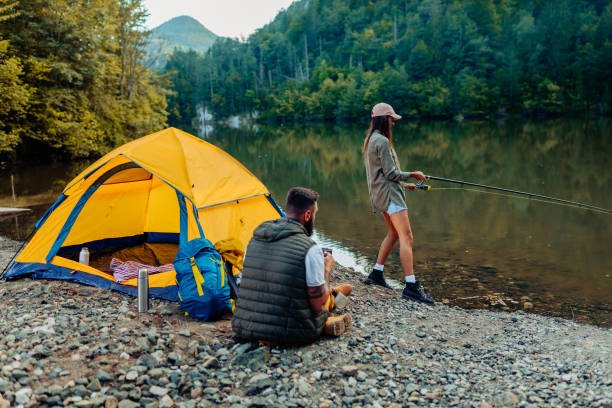
Couples Riverside Camping tips
i. Creating a Cozy Atmosphere: Set the mood with cozy blankets, soft lighting, and comfortable seating. Consider bringing a hammock for relaxing by the river. Enhance the ambiance with candles or lanterns for an intimate evening under the stars.
ii. Activities for Two: Plan activities that you can enjoy together, such as cooking a romantic dinner over the campfire or taking a moonlit stroll along the riverbank. Share stories and create new memories in this picturesque setting.
iii. Making the Most of Your Time Together: Make your camping trip a memorable experience for both of you. Disconnect from distractions and focus on each other. Enjoy quiet moments, engage in meaningful conversations, and savor the beauty of nature together.
Conclusion
In conclusion, this guide has provided you with essential tips for a successful riverside camping experience. We’ve covered everything from selecting the perfect campsite and packing the necessary gear to ensuring safety and enjoying fun activities. By following these guidelines, you can plan and embark on an unforgettable riverside camping trip, filled with adventure, relaxation, and a deep connection to nature. So, start planning today, and get ready to create lasting memories on your riverside camping journey.

